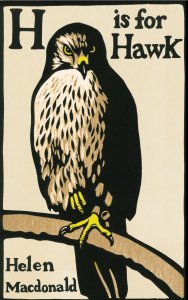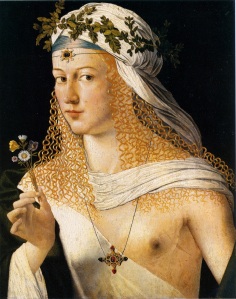When I take the bus in my small city, I sense that I immediately rise from middle-class matron to upper-class termagent. It is not like the tube; it is not like the Metro.
Everybody has a cold, everybody is poor, some are just out of prison and talking at the top of their voice about Jesus, and the majority are distracted by the panem et circenses of their phones.
Thank God for electronics, I think.
I jump off the bus and walk two miles from the mall to the bookstore.
I love to spend a day browsing at the bookstore. I usually buy a book or two (when I have not spent my book budget at the Folio Society). And I always buy a coffee, because it is nice to sit and sip and read. I know who makes a good latte. Today, however, the barista is unfamiliar, older than most, a shifty blonde, and averts her eyes throughout the transaction.
I speculate: On drugs? That is uncharitable, right? Even if I’m right, which I probably am, I should be thinking of this with concern and instead I am thinking in bus terms: who is this person sitting next to me?
I decide to have just coffee.
She takes a long time getting the coffee.
I sip the coffee, immediately get cramps, throw out the coffee, and manage to walk back to the bus stop.
I hold it together until I get home. Thank God my husband can go out to get 7-Up and crackers.
So do you think the barista was a Borgia?
Helen MacDonald’s H Is for Hawk
 Few books have been so lauded in the last year as Helen MacDonald’s H Is for Hawk, a memoir of her grief for her dead father, her training of a goshawk to fend off depression, and a short, creative biography of T. H. White, whose memoir The Goshawk was her inspiration and nemesis. MacDonald’s popular book won the Costa Award and the Samuel Johnson Prize in 2014.
Few books have been so lauded in the last year as Helen MacDonald’s H Is for Hawk, a memoir of her grief for her dead father, her training of a goshawk to fend off depression, and a short, creative biography of T. H. White, whose memoir The Goshawk was her inspiration and nemesis. MacDonald’s popular book won the Costa Award and the Samuel Johnson Prize in 2014.
To prepare for this book, which was published this month here, I read The Goshawk. White, best-known for his novel The Once and Future King, decided to train a goshawk, the wildest of hawks, after he left his job as an unhappy teacher at a public school. MacDonald first read The Goshawk when she was a child, and was upset, as I was, by many passages about Gos’s training.
Although White’s writing is extraordinarily graceful, I was nauseated by his account of the cruel training of Gos. He learned about falconry from a book published in the Renaissance, and the methods were unnecessarily rigid: we learn all about White’s sado-mashochism. He kept the bird awake for three to nine days until Gos finally took food from his hand. The bird was terrified. Both man and bird were deadened with exhaustion. And the training went on.
MacDonald, a researcher at Cambridge, is an expert falconer. When her father died in 2007, she spiraled into a deep depression. Finally she decided to train a goshawk for the first time. She had ordered the hawk from an aviary, and when she met the man with the bird at the quay, he was carrying two boxes with birds, the younger for another falconer. He opened the boxes to check the identity, and Helen fell in love with the first one, which happened to be the wrong one..
Although she tries to be poetic, her prose is overwritten and flowery. Too many adjectives, and too many fragments.
Infinite caution. Daylight irrigating the box. Scratching talons, another thump. ‘And another. The air turned syrupy, slow, flecked with dust.
And I ask myself: syrupy and dusty?
She continues:
The last few seconds before a battle. And with the last bow pulled free, he reached inside, and amidst a whirring, chaotic clattering of wings and feet and talons and high-pitched twittering and it’s all happening at once, the man pulls an enormous, enormous hawk out of the box and in a strange coincidence of world and deed a great flood of sunlight drenches us and everything is brilliance and fury . . . . She is a conjuring trick. A reptile. A fallen angel. A griffon from the pages of an illuminated bestiary. Something bright and distant, like gold falling through water. A broken marionette of wings, legs and light-splashed feathers.
Sadly, I had a picture of myself at a reading feeling uncomfortable because the book is over-dramatic and the prose is blowsy.
She asked if she could have the bird she liked, and he agreed to it.
MacDonald’s training of her bird, Mabel, is much more humane than White’s. She and the bird have a relationship: Mabel even likes to play. But there are problems. MacDonald is still depressed. Her job at Cambridge is coming to an end. And then there are some stresses with training Mabel.
Sometimes she retells White’s The Goshawk creatively from a third person point of view, and that does not work for me. She also writes a kind of psychoanalytic biography of him.
I gave up on the book halfway through.
I’m just not interested in falconry, and her writing is too florid for my taste. I know that many have loved this, and I hope the quotes will encourage those of you who like such prose to seek it out. I would give you my copy, but it’s an e-book!


I wouldn’t have even started H for Hawk or The Goshawk as that kind of cruelty offends me deeply (which may have much to do with me being vegetarian!) But I’m not altogether with prose that florid either! As for the coffee – I’d think carefully about going to that barrista again……
LikeLike
Karen, you’re right! I don’t understand why anyone would want to “fly” a wild bird, and I’m amazed at how popular MacDonald’s book is. At first I thought it was an English thing–lots of references to English public schools and the messed-up men who want both to be gallant as knights and yet have that tradition of cruelty. But it’s in the U.S., too, despite the paucity of boys’s schools: there are falconry associations all over the U.S. White’s memoir is a classic, though I found it slightly sickening and wanted poor Gos to go free: I admired the splendid clarity and brevity of his writing. After MacDonald’s bio of White, with its emphasis on his sado-masochism, I will probably never read White again. And her writing is not for me.
This is a case where I followed the crowd and read what everyone else is reading and loving and it seems my taste is different here.
LikeLiked by 1 person
It’s easy to get carried away and think because everyone likes something, you will. I’ve done that *so* many times myself. If I think it’s happening with something I go and read the one-star reviews – which usually gives me a more balance picture of whether I’ll like a book or not! 🙂
LikeLike
I wasn’t as bothered by the cruelty aspect as I had expected to because I was swept up in the two stories, I do however hate the idea of birds in captivity, and I cheered when T H White’ s goshawk escaped.
LikeLike
Poor Gos was never meant to be a captive. I found what I read of MacDonald’s book dismaying. The subject isn’t for me.
LikeLike
I heard H is for Hawk serialised on the radio and I knew it wasn’t for me. As you say, the prose didn’t appeal. There seems to be a revival of nature writing at the moment, though, which is a good thing. Nobody wrote landscape like Willa Cather!
LikeLike
People do love their nature writing, and books should come to mind, but I guess I get my nature in Willa Cather and Thomas Hardy, etc.!
LikeLike